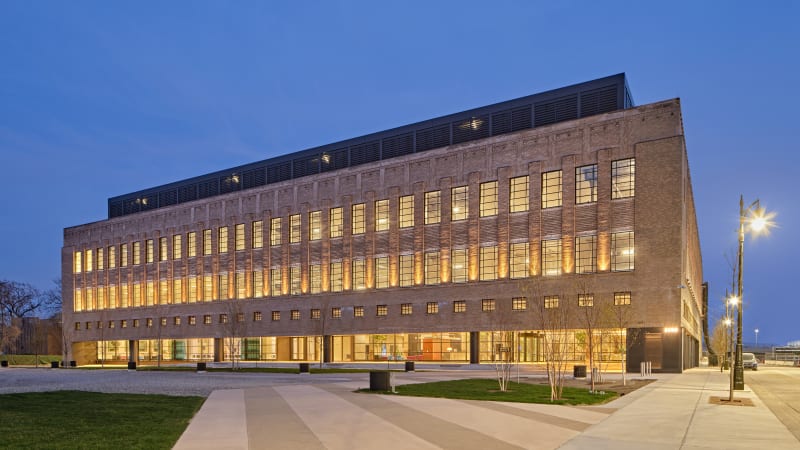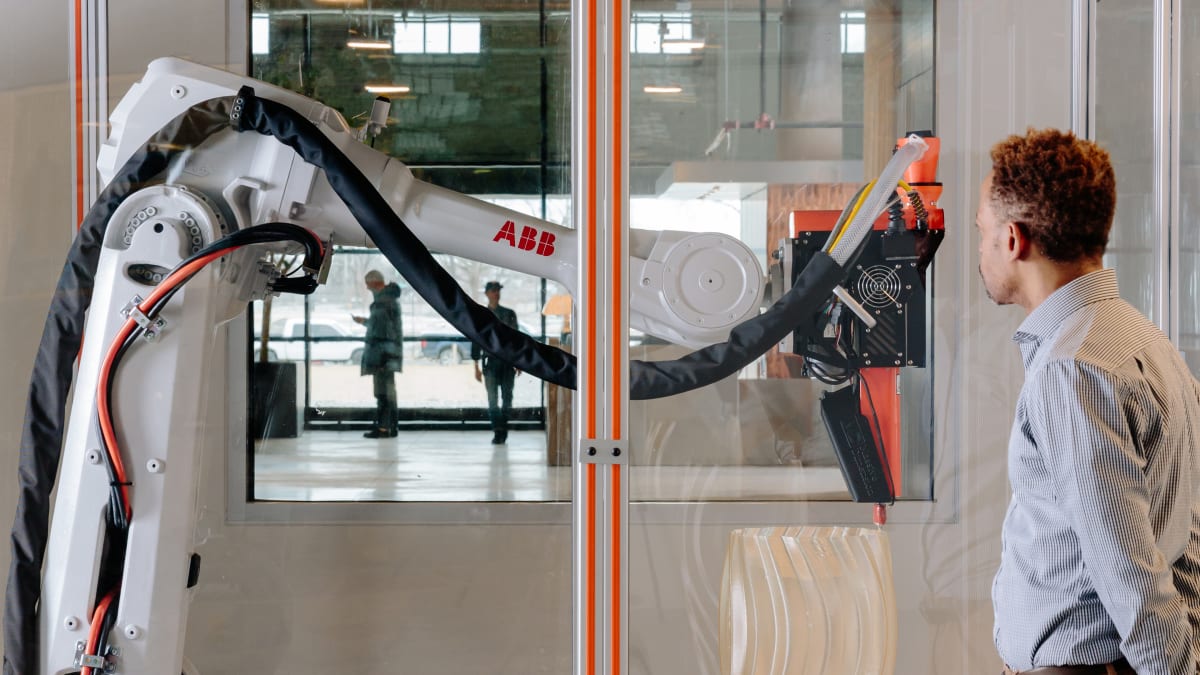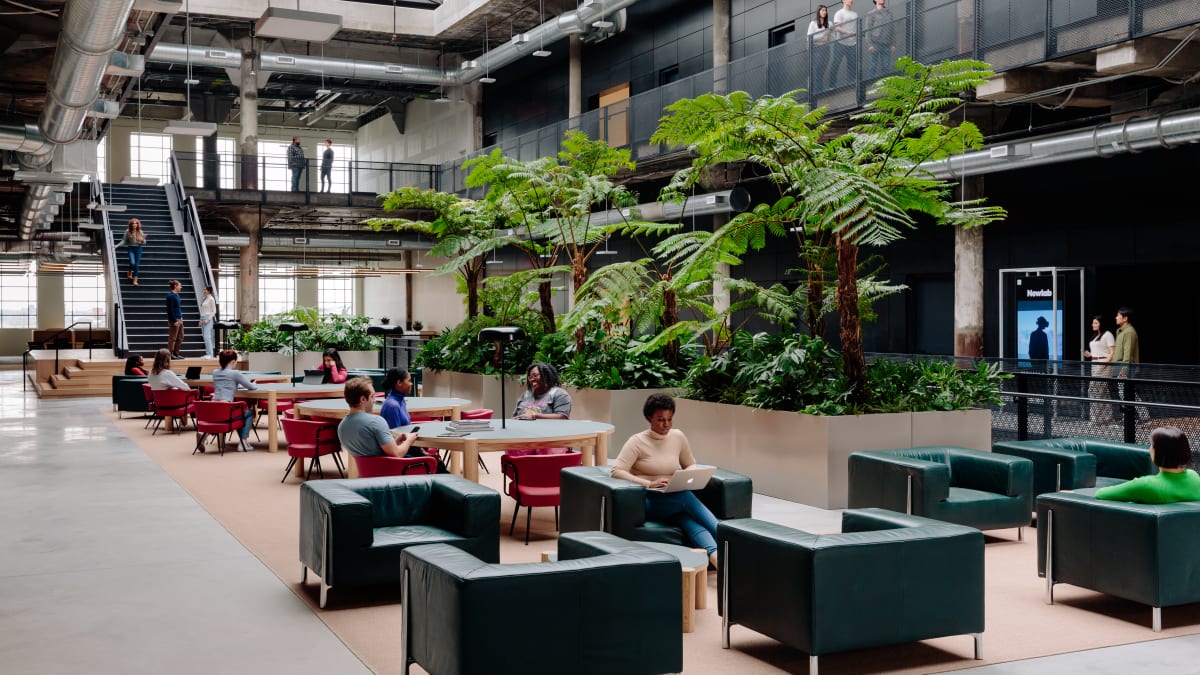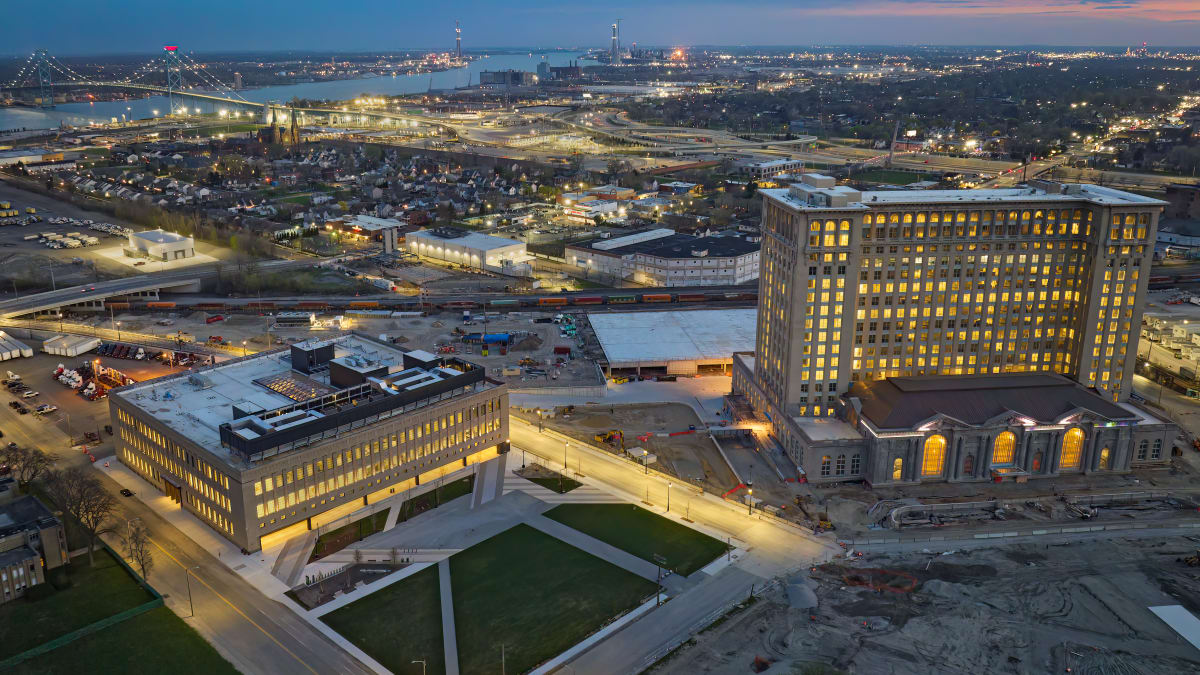Bill Ford’s dream of an urban mobility campus is taking shape in Detroit

DETROIT — Bill Ford’s vision for the future of mobility is braking shape in one of the city’s oldest neighborhoods. When it’s completed, a 110-year-old train station known as Michigan Central will be revitalized and home to hundreds for Ford employees — plus a boutique hotel, shops and restaurants. The first phase, resurrecting a classic 1936 Albert Kahn structure formerly used as a book depository and converting it into a tech incubator, opened Tuesday.
The 270,000-square-foot building is already home to 33 companies working on things like drones, automated vehicles, electric vehicle chargers and air pollution monitoring. They work under the umbrella of an entity called Newlab, which has a similar tech space in the Brooklyn Navy Yard. While Michigan Central is backed by Ford, companies onsite are free to work with other automakers, and Google has signed on as a partner.
“If we made this a Ford-only thing, it wasn’t going to reach its full potential,” Executive Chairman Bill Ford said. “This space will be where young companies really can start.”
Appearing relaxed after the formal remarks, Ford hung around and played host, mingling with the crowd that included politicians (Detroit’s mayor and Michigan’s lieutenant governor), Edsel Ford II and employees from the construction company that helped rebuild the site.


The soaring atrium and sleek glass workplaces contrasted with the unrestored columns and ceilings, adding character and architectural flourish. The revitalized book depository was also a post office and mail sorting facility in previous lives. Though it sat empty for 35 years after a 1987 fire, it’s a relatively easy chore for redevelopers, in line with other projects that have rehabbed a significant portion of Detroit’s downtown. The skyline soared in the 1920s and ‘30s as the automobile and financial industries flourished, and Detroit is still home to one of the most significant collections of Art Deco, Beaux Arts (like Michigan Central) and Neo Gothic structures in the nation.
Ford’s efforts with the book depository were almost an afterthought initially, as the next phase of the project is rebuilding the former train station itself. Designed by the same architects who created New York’s Grand Central Station, the site opened in 1913 in a neighborhood called Corktown, where many residents had immigrated to the United States from County Cork in Ireland. Formerly home to the Detroit Tigers before the team moved downtown, the neighborhood dates to 1834. It still features cobblestones on stretches of Michigan Avenue, and Corktown’s residential section is listed on the National Register of Historic Places.

At its peak, Michigan Central accommodated 200 trains and 4,000 customers, ferrying presidents Teddy Roosevelt, FDR and Harry Truman into the Motor City on its rails. Vacant since the final train left in 1988, the building has been since stripped by vandals. With its faded facade and broken windows, Michigan Central became one of the city’s most notorious eyesores.
Since Ford purchased the structure in 2018, the interior is being gutted, windows replaced and the grounds spruced up. When it’s completed, it will be the crown jewel of the 30-acre campus, home to Ford workers and other developments, as well as outreach and educational programs for the surrounding communities.
Natalie King, the CEO of Dunamis Charge, an EV charger manufacturer growing at Michigan Central, perhaps summed up the project best. “As a native Detroiter, born and raised, I think I can speak for every Detroiter today to say that this is really, really cool, to see this, to see the re-emergence. It’s a phenomenon.”




